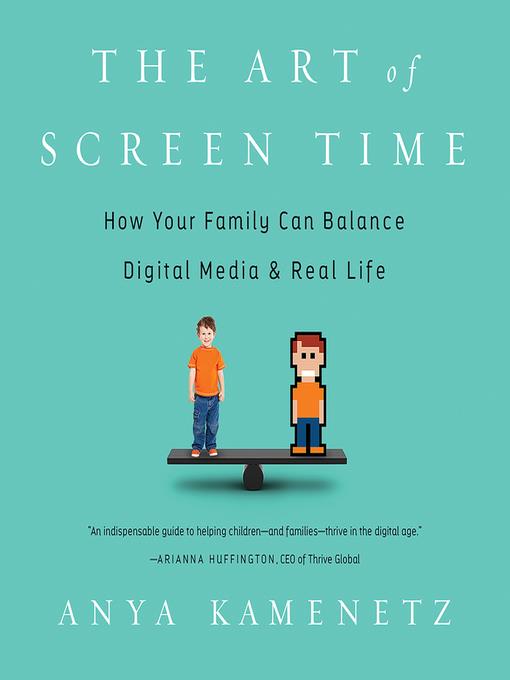
The Art of Screen Time
How Your Family Can Balance Digital Media and Real Life
کتاب های مرتبط
- اطلاعات
- نقد و بررسی
- دیدگاه کاربران
نقد و بررسی

November 1, 2017
Advice for parents on how to deal with the intrusion of digital media into family life.What does it mean that children today spend more of their waking hours on electronic media than on any other activity, including school? NPR lead digital education correspondent Kamenetz (The Test: Why Our Schools Are Obsessed with Standardized Testing--But You Don't Have to Be, 2015, etc.) has done her homework, examining the research on this issue and weighing the evidence pro and con. Unfortunately, the experts have little conclusive data to provide when they look at the possible effects of digital media on aggression, depression, ADHD, and poor performance in school and on standardized tests. Obesity and sleep disorders are the two major problems generally associated with screen time. After reporting on what various experts have discovered (or not), the author turns to parents who have dealt directly with this issue, discussing their rules regarding their children's use of technology. Again, the answers vary in usefulness, but parents reading these stories may find some approaches to adopt as their own. Many readers may choose to skim all but the final chapter, in which the author--who admits "no judgment" if "you don't have any time to read the rest of this book"--gives a 10-point summary of what a parent needs to know. A major point is that sleep and screen time don't mix, which leads to the rule to allow no devices up to an hour before bedtime. Parents will also find advice about engaging with their children on digital media by talking to them about what they are seeing, who they are connecting with on social networks, or even learning to play a video game with them. Ultimately, Kamenetz adapts Michael Pollan's advice about food to screen time: "Enjoy screens; not too much; mostly together."Enough material for a solid magazine piece, stretched out to fill a book. Skip to the last chapter.
COPYRIGHT(2017) Kirkus Reviews, ALL RIGHTS RESERVED.

Author Anya Kamenetz narrates with both chatty enthusiasm and the measured determination of someone who's serious about her message. Her appealing vocal personality makes it easy for listeners to absorb the research she cites about how TV, personal computers, and smartphones impact child development and family life. Writing with a good ear for narrative flow, she also keeps her listeners close by connecting her practical suggestions to her own parenting experiences and those of the many other parents she interviewed. Her major conclusions are that moderation with screens is important, especially for kids with emotional or social handicaps, and that enjoying their devices can be healthy for children if it involves other people and doesn't crowd out other ways of interacting with the world at large. T.W. � AudioFile 2018, Portland, Maine

November 15, 2017
Award-winning education and technology journalist Kamenetz (DIY U, 2010; Generation Debt, 2006) has researched screen time for years. But once she became a parent of two young children, the question of how to balance digital media and real life hit home. Her fourth book is a thoughtful, evidence-based guide to technology that reads like having a conversation with a good friendwho also happens to be incredibly smart, honest, and witty. Kamenetz shares anecdotes from her own parenting experience and draws from today's top experts, sifting through exorbitant amounts of research to highlight the most useful information. She covers everything from toddlers' television habits to teenagers' addictions to video games to future generations using VR and AI technologies. Refreshingly, Kamenetz is a realist and does not condemn technology in the home. Instead, she advises managing it with a spin on a familiar adage, enjoy screens; not too much; mostly together. Kamenetz sheds a critical, yet supportive light on our relationship with technology, and her book is a must-read for any parent.(Reprinted with permission of Booklist, copyright 2017, American Library Association.)

























دیدگاه کاربران